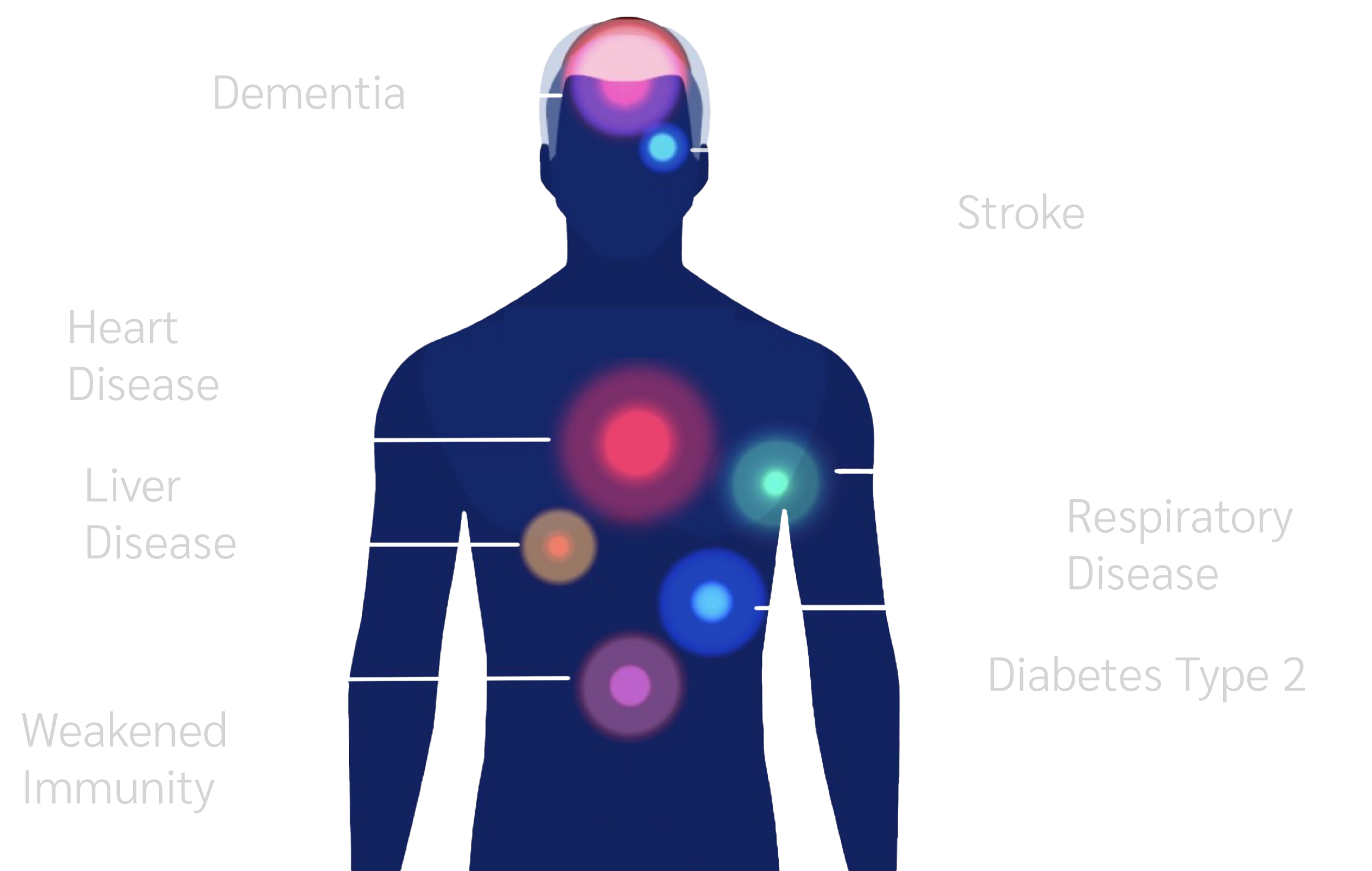Obstructive Sleep Apnea FAQ
What is obstructive sleep apnea (OSA)?
Obstructive sleep apnea is a sleep disorder where breathing repeatedly stops and starts due to blocked airways.
How bad is OSA for my health?
Left untreated, OSA can have significant impacts on your health.- Cardiovascular Problems: OSA is linked to high blood pressure, heart disease, heart attacks, and strokes. The repeated interruptions in breathing cause stress on the cardiovascular system.
- Daytime Fatigue: OSA often leads to poor sleep quality, resulting in excessive daytime sleepiness, fatigue, and difficulty concentrating. This can affect your work performance and increase the risk of accidents.
- Metabolic Disorders: OSA is associated with an increased risk of type 2 diabetes and metabolic syndrome. The disruptions in sleep can affect insulin sensitivity and glucose metabolism.
- Liver Problems: OSA can contribute to abnormal liver function and nonalcoholic fatty liver disease.
- Mental Health Issues: Poor sleep quality and chronic fatigue can contribute to depression, anxiety, and other mental health issues.
- Weight Gain: OSA is often associated with weight gain and obesity. The fatigue and lack of energy can make it challenging to maintain a healthy lifestyle.
- Decreased Immune Function: Poor sleep can weaken the immune system, making you more susceptible to infections.
- Increased Mortality Risk: Severe untreated OSA has been linked to an increased risk of mortality due to its association with cardiovascular diseases and other health conditions.

How does it affect my daily life?
Beyond the long-term health dangers, OSA can heavily affect your daily life if untreated.
- Sleep deprivation
- Depression
- Anxiety
- Focus
- Mood swings
- Reduced libido and hormone imbalances
- Poor sleep quality
- Higher risk of accidents
- Excessive daytime sleepiness and exhaustion
When should someone see a doctor about obstructive sleep apnea?
- Snoring loud enough to disturb your sleep or that of others
- Waking up gasping or choking
- Pausing in your breathing during sleep
- Having excessive daytime drowsiness, which may cause you to fall asleep while working, watching television, or even driving a vehicle
How can positional therapy help sleep apnea?
Studies have shown that positional therapy can reduce obstructive sleep apnea in a majority of OSA sufferers, by opening up the airways with side sleeping. This is the therapy SleepDev specializes in. You can read more about how positional therapy works on our FAQ page.
-Tiny.png)